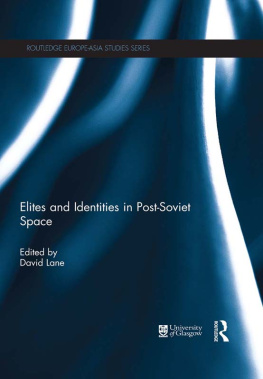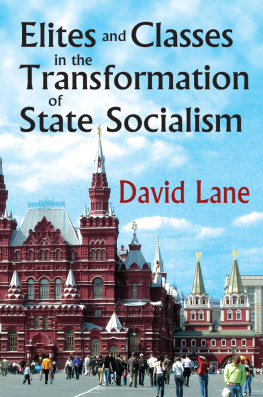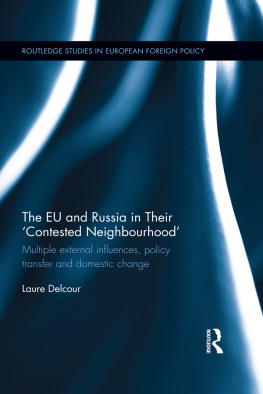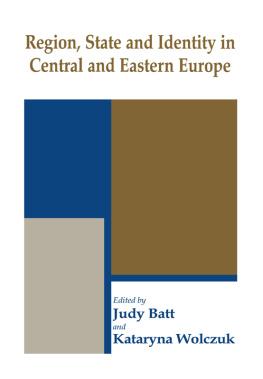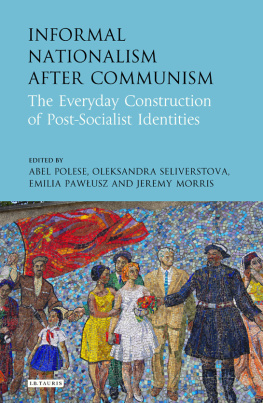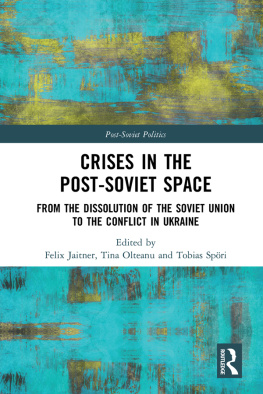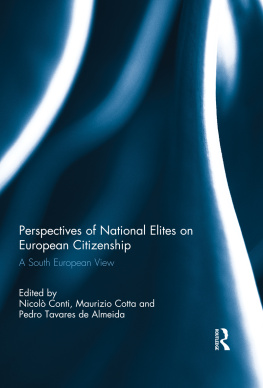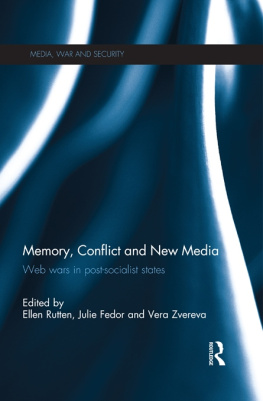Elites and Identities in Post-Soviet Space
The dissolution of the communist system led to the creation of new states and the formation of new concepts of citizenship in the post-Soviet states of Central and Eastern Europe.
The formation of national identity also occurred in the context of the process of increasing economic and political globalisation, particularly the widening of the European Union to include the central European post-socialist and Baltic States. Internationally, Russia sought to establish a new identity either as a European or as a Eurasian society and had to accommodate the interests of a wider Russian Diaspora in the near abroad.
This book addresses how domestic elites (regional, political and economic) influenced the formation of national identities and the ways in which citizenship has been defined. A second component considers the external dimensions: the ways in which foreign elites influenced either directly or indirectly the concept of identity and the interaction between internal elites. The essays consider the role of the European Union in attempting to form a European identity. Moreover, the growing internationalization of economies (privatisation, monetary harmonisation, dependence on trade) also had effects on the kind of national identity sought by the new nation states as well as the defining by them of the other.
The collection focuses on the interrelations between social identity, state and citizenship formation, and the role of elites in defining the content of concepts in different post-communist societies.
This book was originally published as a special issue of Europe-Asia Studies.
David Lane is Emeritus Fellow of Emmanuel College, Cambridge and was previously Professor of Sociology at the University of Birmingham. His recent work includes: Elites and Classes in the Transformation of State Socialism (2011), Rethinking the Coloured Revolutions (with Stephen White, 2010); The European Union and World Politics (with Andrew Gamble, 2009); The Transformation of State Socialism: System Change, Capitalism or Something Else? (2007). Recent articles have been published in: The Political Quarterly (2008); Mir Rossii (2007); New Political Economy (2008); British Journal of Politics and International Relations (2009); European Societies (2010) and Communist Studies and Transition Politics (2011).
Routledge Europe-Asia Studies Series
A series edited by Terry Cox
University of Glasgow
The Routledge Europe-Asia Studies Series focuses on the history and current political, social and economic affairs of the countries of the former communist bloc of the Soviet Union, Eastern Europe and Asia. As well as providing contemporary analyses it explores the economic, political and social transformation of these countries and the changing character of their relationships with the rest of Europe and Asia.
Challenging Communism in Eastern Europe
1956 and its Legacy
Edited by Terry Cox
Globalisation, Freedom and the Media after Communism
The Past as Future
Edited by Birgit Beumers, Stephen Hutchings and Natalia Rulyova
Power and Policy in Putin's Russia
Edited by Richard Sakwa
1948 and 1968 Dramatic Milestones in Czech and Slovak History
Edited by Laura Cashman
Perceptions of the European Union in New Member States
A Comparative Perspective
Edited by Gabriella Ilonszki
Symbolism and Power in Central Asia
Politics of the Spectacular
Edited by Sally N. Cummings
The European Union, Russia and the Shared Neighbourhood
Edited by Jackie Gower and Graham Timmins
Russian Regional Politics under Putin and Medvedev
Edited by Cameron Ross
Russia's Authoritarian Elections
Edited by Stephen White
Elites and Identities in Post-Soviet Space
Edited by David Lane
Elites and Identities in Post-Soviet Space
Edited by
David Lane
First published 2012
by Routledge
2 Park Square, Milton Park, Abingdon, Oxon, OX14 4RN
Simultaneously published in the USA and Canada
by Routledge
711 Third Avenue, New York, NY 10017
Routledge is an imprint of the Taylor & Francis Group, an informa business
2012 University of Glasgow
This book is a reproduction of Europe-Asia Studies, vol. 63, issue 6. The Publisher requests to those authors who may be citing this book to state, also, the bibliographical details of the special issue on which the book was based.
All rights reserved. No part of this book may be reprinted or reproduced or utilised in any form or by any electronic, mechanical, or other means, now known or hereafter invented, including photocopying and recording, or in any information storage or retrieval system, without permission in writing from the publishers.
Trademark notice: Product or corporate names may be trademarks or registered trademarks, and are used only for identification and explanation without intent to infringe.
British Library Cataloguing in Publication Data
A catalogue record for this book is available from the British Library
ISBN13: 978-0-415-50022-7
Typeset in Times New Roman
by Taylor & Francis Books
Publisher's Note
The publisher would like to make readers aware that the chapters in this book may be referred to as articles as they are identical to the articles published in the special issue. The publisher accepts responsibility for any inconsistencies that may have arisen in the course of preparing this volume for print.
Contents
David Lane
Part I Conceptualising Identities
Ireneusz Pawel Karolewski
Richard Sakwa
Peter Zeniewski
Part II Formation of Elites
Heinrich Best
Katharina Bluhm, Bernd Martens & Vera Trappmann
Gyrgy Lengyel
Part III Country Studies
Inna Melnykovska, Rainer Schweickert & Tetiana Kostiuchenko
John Russell
Magdalena Solska
Timor Sharan
Heinrich Best is Professor of Sociology and holds the Chair of Social Science Research Methods/Structural Analysis of Modern Societies at the University of Jena. He is also Co-Director of the multidisciplinary Collaborative Research Centre Social Development after Structural Change: Discontinuity, Tradition and the Emergence of New Structures. His most recent publications include: Democratic Elitism: New Theoretical and Comparative Perspectives (Brill, 2010, with John Higley); Transitions, Transformations: Trajectories of Social, Economic and Political Change after Communism, Historical Social Research, 35, 2010; Landmark 1989. Central and Eastern European Societies Twenty Years After the System Change (LIT, 2010, with Agnieszka Wenniger); and Elites and Social Change. The Socialist and Post-Socialist Experience (Kraemer, 2009, with Ronald Gebauer and Axel Salheiser).

